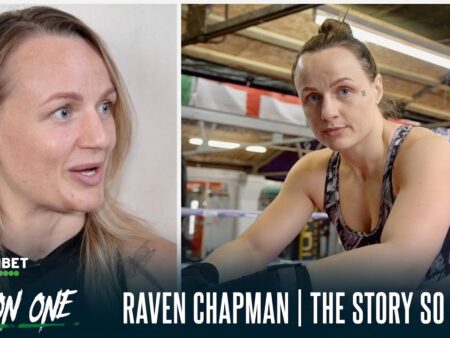The 2025 Ryder Cup was always destined to be an event of high drama, a crucible of national pride and athletic prowess. But at Bethpage Black in Farmingdale, New York, the venerable tradition of competitive golf was seasoned with an unexpected ingredient: an almost theatrical level of fan engagement that tested the very fabric of sportsmanship. As European stalwarts Rory McIlroy and Shane Lowry stepped onto the course for their Saturday four-ball match, they weren`t just facing their American opponents; they were entering a gladiatorial arena where the crowd itself became a formidable, vocal adversary.
The Crucible of Bethpage: A Cacophony of Contention
From the moment Bethpage Black was announced as the host, expectations were high for a raucous atmosphere. This course, renowned for its “Black Course” moniker and “Warning: The Black Course Is An Extremely Difficult Course Which We Recommend Only For Highly Skilled Golfers” sign, seemed to perfectly embody the defiant spirit of its New York patrons. What unfolded, however, transcended mere enthusiasm. McIlroy and Lowry, representing Europe, found themselves the targets of a relentless, 18-hole barrage of heckling that escalated far beyond traditional sporting banter.
Imagine, for a moment, the immense pressure of lining up a crucial putt with thousands of eyes on you, only to have those eyes accompanied by a chorus of pointed, personal insults. This was the reality for the European pair. The verbal jabs weren`t just generic shouts; they were meticulously crafted provocations, referencing McIlroy`s past major losses, questioning his recent Masters win as a “fluke,” and even delving into his personal life. Lowry, not to be spared, faced comments about his physique and perceived lack of contribution. It was, as Lowry himself would later describe, an experience unlike any other.
Athlete Under Siege: The Players` Response
Elite athletes are typically paragons of composure, their focus a steel trap. Yet, even for seasoned professionals like McIlroy, there`s a limit. Early on Saturday, after a particularly ill-timed shout during his pre-shot routine, McIlroy`s measured response of “Shut the f— up!” reverberated across the course and television screens, a rare glimpse into the boiling point of an otherwise stoic competitor. This was not the polite claps or “get in the hole” shouts of a regular tournament; this was personal, persistent, and borderline hostile.
The intensity forced a response not only from the players but from the event organizers. Security was visibly augmented, with New York State Police troopers lining the ropes, a sight more common at rock concerts than a golf major. Ejections occurred, a necessary but ultimately insufficient measure against a crowd determined to exert its “home advantage” with maximum volume. Lowry, at one point, personally directed a state trooper to remove a particularly vocal fan, a direct statement on where the line had been crossed.
“We knew what we were going to get coming here. It was a very tough day. Being out with Rory doesn`t make it any easier. I think he`s getting the brunt of it.”
— Shane Lowry, reflecting on the Ryder Cup experience.
The Thin Line: Passion vs. Provocation
U.S. captain Keegan Bradley offered a perspective, attributing the crowd`s fervor to the passion of their home team, especially as Europe gained a significant lead. “Their home team is getting beat bad,” he noted, acknowledging that some fans inevitably “cross the line.” This explanation, while offering context, skirts the uncomfortable truth that while passion is admirable, targeted harassment of athletes undermines the spirit of competition that makes events like the Ryder Cup so compelling.
The incident on the 11th green, where marshals, rules officials, and even American players Justin Thomas and Cameron Young tried to quiet the crowd for McIlroy, highlighted the awkward dance between encouraging home support and maintaining decorum. It seems even the opposing players recognized the situation had spiraled. Yet, the persistent nature of the heckling suggests a new frontier in fan behavior, one where the emotional investment of spectators morphs into a perceived license for incivility.
Turning Vitriol into Victory: The European Resolve
Perhaps the most compelling narrative from this chaotic Saturday was the resilience of the European pair. Rather than crumbling under the pressure, McIlroy, fueled by the hostile energy, transformed the adversity into a defiant surge. His emphatic “Come on! Come the f— on!” celebration after sinking a crucial birdie putt on the 14th hole was not just a shout of triumph but a visceral response to his tormentors. It was a raw, unfiltered moment that perfectly captured the emotional rollercoaster of the day. He stared down the crowd, pointed to the scoreboard, effectively telling them their efforts had only strengthened his resolve.
Ultimately, McIlroy and Lowry secured a 2-up victory over Thomas and Young, a critical point for the European side. Their embrace with wives and teammates afterward, amidst a pocket of jubilant European supporters, felt less like a simple match win and more like emerging victorious from a psychological battle. Lowry`s declaration that “this is what I live for” and his love for being part of the team underscored the unique, almost primal satisfaction of prevailing in such a hostile environment.
The Unfolding Legacy of the Roar
The 2025 Ryder Cup at Bethpage Black will likely be remembered not just for its swings and putts, but for its unparalleled intensity from the galleries. It raises significant questions about the evolving nature of fan engagement in sports: Where is the line between enthusiastic support and inappropriate abuse? How do event organizers manage a passionate crowd without stifling the atmosphere that makes these events so special?
For Rory McIlroy and Shane Lowry, it was a day where their mental fortitude was tested as much as their golf skills. They didn`t just win a match; they weathered a storm, transforming personal attacks into a powerful, defiant performance. In a world where the noise of the crowd can sometimes overwhelm the game, their ability to find focus amidst the chaos stands as a testament to the indomitable spirit of true champions. Bethpage Black gave us a Ryder Cup that was loud, confrontational, and utterly unforgettable.











